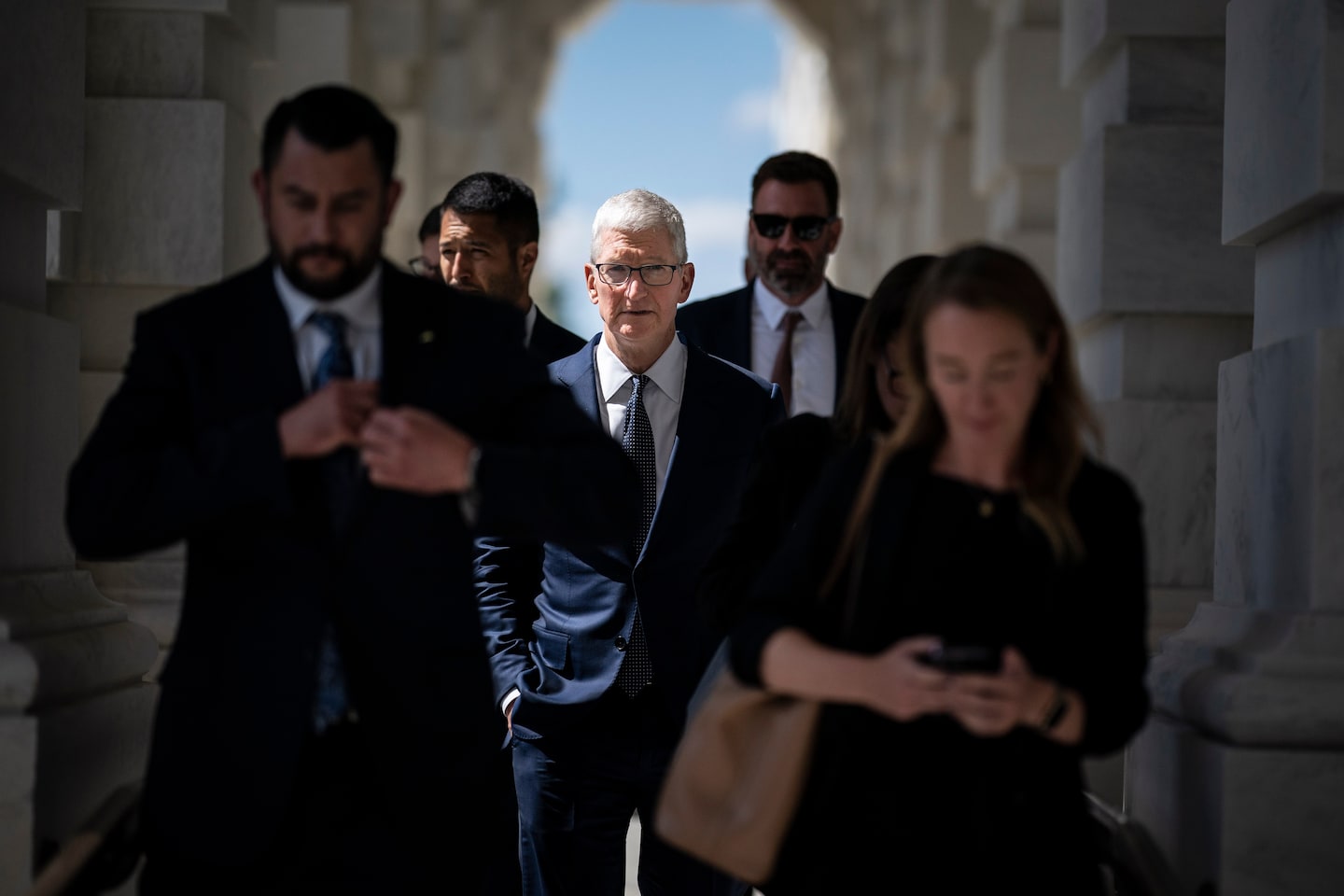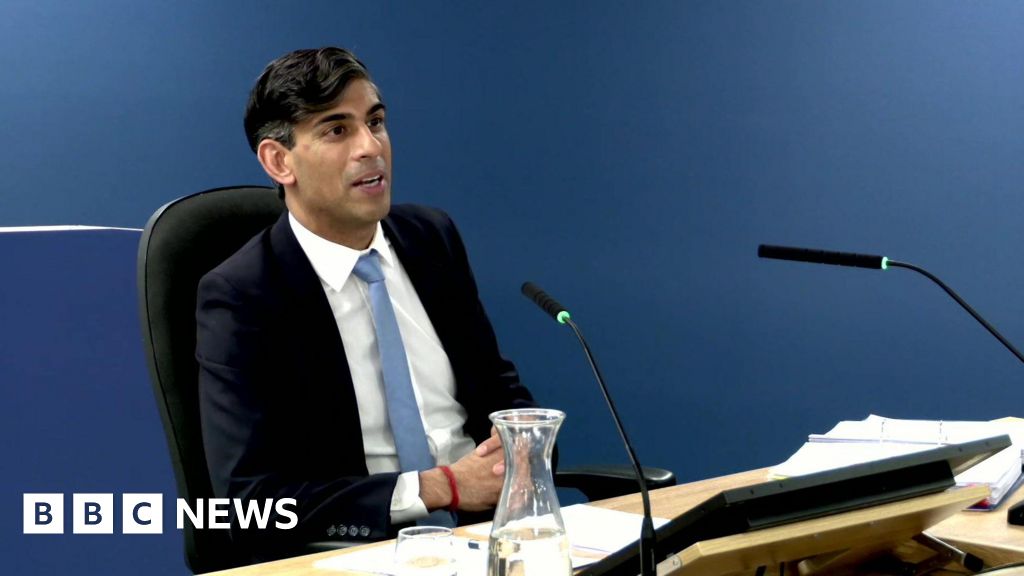
DOJ sues Apple, alleging antitrust violations over iPhones
- Science
- March 21, 2024
- No Comment
- 122
Instead of competing with rivals by offering more affordable services, federal and state enforcers claim Apple imposed “a series of shapeshifting rules and restrictions” to “extract higher fees, thwart innovation, offer a less secure or degraded user experience, and throttle competitive alternatives.”
Through that conduct, the Justice Department and states allege in the complaint, Apple “built and reinforced the moat around its smartphone monopoly.” Enforcers and legislators have long expressed concern that by rigidly curating users’ experiences on the iPhone and its other gadgets, Apple has excluded rivals from its ecosystem — giving the company an unfair leg up on competitors.
The lawsuit marks the federal government’s most aggressive attempt to date to dislodge Apple’s perceived dominance over the market.
“Apple has consolidated its monopoly power not by making its own products better, but by making other products worse,” U.S. Attorney General Merrick Garland said at a news conference Thursday announcing the complaint.
Apple spokesman Fred Sainz said in a statement that the lawsuit is “wrong on the facts and the law” and that the company “will vigorously defend against it.”
“This lawsuit threatens who we are and the principles that set Apple products apart in fiercely competitive markets,” Sainz said. “If successful, it would hinder our ability to create the kind of technology people expect from Apple—where hardware, software, and services intersect.”
Tim Wu, a professor at Columbia Law School who previously served as President Biden’s adviser on technology and competition policy, said the complaint “goes straight down main street” by targeting the core of Apple’s vast empire: the iPhone.
“It’s the thing that’s just staring everyone in the phone: How is it that Apple has been able to maintain these profit margins for so long given that Android phones are often cheaper?” said Wu.
Apple is facing mounting legal and regulatory scrutiny on several fronts, including for purportedly exploiting its grip over competitors and consumers by imposing restrictions and steep fees in its popular App Store.
Critics have accused the tech giant of undermining smaller companies by barring app makers from using outside payment systems and charging hefty fees on transactions. The company has begun to open up its walled gardens, but competitors have continued to hammer the changes as insufficient.
European regulators fined Apple nearly $2 billion this month, accusing it of “abusing” its influence over music streaming platforms and preventing developers from informing users about “alternative and cheaper” services, the culmination of a years-long investigation. Apple said it plans to appeal the fine, which it said “ignores the realities” of the music streaming industry.
Apple is one of six tech giants subject to more stringent competition restrictions under Europe’s sweeping new rule book, known as the Digital Markets Act, which could force the company to open its products to outside services.
Last year, Apple largely prevailed in an antitrust lawsuit filed by rival Epic Games, maker of the popular Fortnite video game series. A federal appeals court ruled that Epic failed to make its case that Apple controls an app store monopoly under federal law, but that the giant did violate competition laws in California by forcing developers to use its payment services without informing consumers about alternatives.
Major tech companies including Facebook parent Meta and Microsoft have since argued that Apple’s plan to comply with the decision is deeply flawed.
The latest lawsuit alleges that Apple has maintained its iPhone monopoly by disrupting apps that could make it easier for consumers to switch smartphones, blocking mobile cloud streaming services that allow them to enjoy products outside the company’s ecosystem and degrading the quality of alternative messaging apps. Fifteen states including California, New York and Tennessee joined the District of Columbia and the DOJ in filing the lawsuit.
DOJ antitrust chief Jonathan Kanter said Thursday that Apple has been a “significant beneficiary” of the U.S.’s landmark antitrust case against rival Microsoft more than two decades ago, which he said “paved the way for Apple to launch” many of its products. In that case, courts found that Microsoft invested significant resources to quash threats to its web browser, including from Apple.
But Apple has since “engaged in many of the same practices that Microsoft used” to entrench its dominance, said acting associate attorney general Benjamin Mizer.
The complaint, which said that iPhone dominates more than 70 percent of the high-end smartphone market, attempts to show how Apple’s alleged exclusionary practices impact people in their day-to-day lives. The Justice Department, for example, alleges that Apple makes it harder for its owners to communicate with Android users — using the ubiquitous blue text bubbles to denote iPhone users and green text bubbles to identify Android users.
Officials said that conversations between iPhone users and Android users are not encrypted, videos are grainier and they and do not offer the same editing features. The complaint says these bugs are by design and are intended to encourage Android users to purchase iPhones.
“As a result, iPhone users perceive rival smartphones as being lower quality because the experience of messaging friends and family who do not own iPhones is worse — even though Apple is the one responsible for breaking cross-platform messaging,” Garland said in his statement.
Apple’s Sainz said in the statement that the company innovates “every day to make technology people love—designing products that work seamlessly together, protect people’s privacy and security.”
The DOJ lawsuit is the Biden administration’s latest major salvo against Silicon Valley giants over claims they are stifling competition through monopolistic and anti-competitive practices.
The DOJ sued to break up Google’s digital advertising business last year and is fighting the company in court in a separate lawsuit targeting its dominance over search that was launched under the Trump administration.
The Federal Trade Commission, meanwhile, is leading an antitrust lawsuit against Amazon, alleging the e-commerce giant abused its power to stifle competitors, and it previously sued Meta over its dominance in social media. (Amazon founder Jeff Bezos owns The Washington Post.)
Wu, the former White House adviser, said the cases appear to reflect a strategy of going after “the monopolies that everyone associate these companies with.”
Many of the administration’s antitrust actions have bipartisan support. That’s reflected in the Democratic and Republican attorneys generals that signed on to this lawsuit.
The Biden administration has pledged to fight corporate consolidation more aggressively than previous administrations.
Under Garland, the department has brought on big-name antitrust lawyers to lead the section and has notched victories in fighting mergers in the health-care and publishing industries.
In March, JetBlue and Spirit Airlines announced they would drop their merger plans after the Justice Department successfully brought a suit against them. The Justice Department has requested to significantly increase their antitrust budget in fiscal year 2025 to grow their enforcement capacity.
The Justice Department launched a broad review in 2019 of potential antitrust violations in the tech sector, which morphed into major investigations of several of Silicon Valley’s most powerful players, including Apple and Google.
#DOJ #sues #Apple #alleging #antitrust #violations #iPhones









